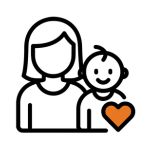
Government grants in South Africa offer financial support to individuals, households, and businesses facing hardship or working towards development goals. These grants assist those unable to meet basic needs due to age, disability, unemployment, or caregiving responsibilities, and also promote economic participation through targeted business and agricultural funding. Knowing who qualifies and how to apply ensures this support reaches those who need it most, whether through the South African Social Security Agency (SASSA) or other government programmes.
Key Takeaways
- SASSA Grants Cover a Range of Needs: South African government grants, managed by SASSA, provide non-repayable financial assistance to individuals who are elderly, disabled, unemployed, or responsible for children. Each grant has its own eligibility criteria based on factors such as age, income, and residency.
- Specific Grants Serve Targeted Groups: The country offers various grants including the Older Person’s Grant, Child Support Grant, Disability Grant, and Social Relief of Distress Grant. These are designed to support those in vulnerable situations, including caregivers, foster parents, and individuals with short-term financial crises.
- Support Also Available for Business and Education: Beyond social grants, the government funds business development and youth entrepreneurship through agencies like SEFA, NYDA, and the NEF. The NSFAS scheme also provides financial aid to qualifying students from low-income households.
About Arcadia Finance
Get the funds you need with ease through Arcadia Finance. Pay no application fees and choose from 19 trusted lenders, all registered with South Africa’s National Credit Regulator. Experience a smooth, transparent process and reliable options designed to fit your financial goals.
What Are Government Grants in South Africa?
Government grants in South Africa are non-repayable financial payments provided by the state to support individuals and households who are financially vulnerable. These grants are administered primarily by the South African Social Security Agency (SASSA) and are intended to reduce poverty and assist those who cannot support themselves due to age, disability, unemployment, or childcare responsibilities. Eligibility for these grants depends on specific criteria such as citizenship or residency status, age, income, and assets. Most grants are subject to a means test to ensure they reach those with the greatest need.
There are several types of SASSA grants available, including the Older Person’s Grant, Disability Grant, Child Support Grant, Foster Child Grant, Care Dependency Grant, Grant-in-Aid, War Veteran’s Grant, and the Social Relief of Distress (SRD) Grant. Each grant targets a different group, such as elderly citizens, children in need of care, or individuals facing temporary hardship.
In addition to social grants, the government also offers certain development-focused funding for businesses or skills training, although these are handled separately from SASSA. Grants play a central role in South Africa’s efforts to provide a basic income safety net for vulnerable communities.
What is SASSA?
The South African Social Security Agency (SASSA) is the public body responsible for managing one of the largest social support systems globally. Established under the SASSA Act of 2004, the agency handles the distribution of social grants and allowances to vulnerable individuals across South Africa, including war veterans, single parents, foster parents, and people living with severe disabilities. These grants are intended to provide financial assistance to those facing poverty and in need of government support to meet basic living requirements. SASSA operates within the framework of the South African Constitution, particularly Sections 24 to 29 of the Bill of Rights, which recognises socio-economic rights. The government uses available resources to implement policies aimed at gradually realising these rights through legally mandated social security measures.

Types of SASSA Grants

SRD Grant
The Social Relief of Distress (SRD) grant was introduced during the COVID-19 pandemic to provide short-term financial help to people with low or no income.
To qualify for an SRD grant:
- The main income earner in the household must have a temporary disability that is expected to last fewer than six months.
- The breadwinner must have spent at least one month in a public or private institution.
- The household breadwinner must have passed away.
- An SRD grant may be agreed to if an approved social grant is still awaiting payment.
- The applicant must be affected by a disaster in their area, even if the area has not been officially declared a disaster zone.
- The death of the breadwinner must be reported within 12 months when applying for this grant.

Care Dependency Grant
The Care Dependency Grant (CDG) supports caregivers of children with serious physical or mental disabilities. The child must be younger than 18 years old and have a permanent disability that requires ongoing care.
Raising a child who needs specialised care can be very expensive. This grant helps to reduce some of the financial strain.
The recipient can either be the child’s primary caregiver or their legally recognised foster parent.
Caregivers do not qualify for this grant if the child is staying in a government-run institution for more than six months and receiving full-time care.

Child Support Grant
Child Support Grants (CSG) help biological parents or legal caregivers who do not have the financial means to care for their children.
Children under the age of 18 can receive this grant if their primary caregiver applies.
The caregiver must:
- Be at least 16 years old.
- Be the child’s biological parent or another person responsible for their care.
- Ensure the child’s daily needs are met.
Biological parents do not automatically receive this grant. If they cannot prove they are the main caregiver, they will not qualify.

Disability Grant
The Disability Grant (DG) provides financial support to people living with disabilities.
You may apply for this grant if you are:
- Between the ages of 18 and 59.
- Living with a disability that affects your physical or mental abilities.
- Unable to earn a living or support yourself financially.
There are two types of Disability Grants: temporary or permanent. A temporary grant typically covers six to twelve months. If the condition has not improved when the temporary grant ends, the recipient must reapply.
You must present a medical report or assessment, dated within three months, as proof of your disability when applying.

Foster Child Grant
Foster Child Grants (FCG) are for children placed in foster care through the Children’s Court. The child must be under 18 years old and legally placed in foster care. The grant is paid to the foster parent, who is not the biological parent.
A social worker from the Department of Social Development helps the Magistrate’s Court select foster parents. To qualify, foster parents must provide a valid court order and reside in South Africa with the child.
Before each grant renewal, a social worker assesses the child’s situation to ensure it remains unchanged. The court order can be extended if needed.
If the child is studying, they may continue receiving the grant up to the age of 21. A new application, with proof of study and court extension, must be submitted each year after the child turns 18.

Older Person Grant
The Older Person Grant, also known as the Old Age Pension, is available to individuals aged 60 or older.
Applicants must not be living in a government-run institution and must not receive another grant. Those living in subsidised facilities, such as old age homes, may still apply.
A means test is used to check income and assets to determine eligibility.
Currently, the Older Person Grant pays R2 080 or R2 100 per month. Individuals between 60 and 75 receive the lower amount, while those older than 75 receive the higher rate.
For pensioners, every adjustment matters. SASSA pension increase highlights recent changes and what they mean for older South Africans.

Grant-In-Aid
Grant-In-Aid (GIA) provides additional financial help to people already receiving an Older Person, Disability, or War Veteran Grant, who require help with day-to-day tasks.
This grant supports individuals with serious mental or physical conditions that prevent them from managing basic personal care, housework, or laundry.

War Veterans Grant
The War Veterans Grant (WVG) is for South Africans who served in World War II or the Korean War.
Applicants must be older than 60, live with a disability, and not be living in a state-run institution. They also cannot receive any other adult grant.
Knowing when your grant will be paid is just as important as qualifying for it. Our resource on SASSA payment dates for July helps you plan ahead and budget around incoming funds.

Business and Development Grants
Government grants in South Africa serve to promote economic inclusion, job creation, and sustainable development by supporting entrepreneurs, small businesses, youth initiatives, and targeted sectors such as agriculture and manufacturing.
| Grant/Agency | Description | Qualifications |
|---|---|---|
| Department of Trade, Industry and Competition (DTIC) | Supports industrial growth through programmes like the Black Industrialists Scheme and Export Marketing and Investment Assistance (EMIA). | – South African citizen or permanent resident – Majority black ownership (Black Industrialists Scheme) – Regulatory compliance – Operational capacity and viable business plan – Actively trading or ready to operate |
| Small Enterprise Finance Agency (SEFA) | Provides financial support to township and rural businesses through loans and direct lending. | – South African citizen or permanent resident – Legally registered and compliant business – Operate in township/rural areas encouraged – Viable business plan – Supporting documents |
| National Youth Development Agency (NYDA) | Offers funding, mentorship, and business support for young entrepreneurs. | – South African citizen – Age 18–35 – Commercially viable business or idea – Registered or in registration process – Active involvement and commitment to sustainability |
| National Empowerment Fund (NEF) | Promotes black economic participation through funding for black-owned businesses. | – South African citizen – Majority black ownership and active participation – Regulatory compliance – Viable business proposal – Agreement to NEF terms |
| Department of Agriculture | Supports emerging and subsistence farmers with grants like CASP and Ilima/Letsema. | – South African citizen – Proof of land rights or land access – Individual or cooperative – Practical farming plan – Alignment with sector guidelines |
| Department of Higher Education (NSFAS) | Provides financial assistance for students from low-income households to study at public institutions. | – South African citizen – Proven financial need (means-tested) – Accepted at a public university or Technical and Vocational Education and Training (TVET) college – Meeting academic progress and registration requirements |

Tips To Improve Your Application
- Know What You Need Before Starting: Understand the eligibility rules and prepare all required documents. SASSA will ask for your ID number, home address, and contact details. Some grants may need extra paperwork.
- Create My SASSA Account: A My SASSA account is needed for online applications. Register at www.sassa.gov.za using your ID and a valid mobile number. Update your number if it has changed.
- Carefully Fill Out the Online Application Form: After signing in, select ‘Apply for Grants’. Complete all fields and check for errors. Use the mobile number linked to your SASSA account.
- Prepare to Upload Supporting Documents: Upload clear scans or photos of your documents in PDF, JPEG, or PNG format. Check file sizes and quality. Organise and label files properly.
- Select Suitable Payment Method: Choose between bank deposit, post office, or Cash Paymaster. Bank payments are quickest. Ensure your banking details match SASSA records.
- Track Application Status Regularly: Monitor your application through My SASSA. Processing takes 6–8 weeks. Respond quickly if SASSA contacts you about your documents.
- Stay Alert for Successful Payment Notification: Approved payments are confirmed via SMS or email. Check your bank or collect cash promptly. Missed cash pickups expire after 3 months.
- Renew on Time for Continued Assistance: Some grants must be renewed every 6–12 months. Renew before expiry to avoid disruptions. Update SASSA if your income or details change.
Conclusion
Government grants remain an essential form of support for many individuals and families across South Africa. Through SASSA, a wide range of grants is made available to citizens and residents who meet specific eligibility requirements. Whether you are applying for an Older Person’s Grant, Disability Grant, Child Support Grant, or the Social Relief of Distress Grant, knowing what is required and following the correct application steps can help you access this assistance. Keeping your information updated and renewing grants on time will ensure continued support when you need it most.
Frequently Asked Questions
Any South African citizen, permanent resident, or registered refugee who meets the eligibility criteria for a particular grant may apply. Each grant has its own rules regarding age, income, disability, or caregiving status.
It generally takes about 30 working days for SASSA to process an application. Once approved, payments are backdated to the date of application and typically start within three months.
Applicants need certified copies of their ID or refugee permit, proof of residence, proof of income, and supporting documents such as medical reports or court orders, depending on the type of grant.
Yes, many SASSA grants can be applied for online through the SASSA eServices portal. You must first create a My SASSA account and upload the required documents.
If your application is declined, SASSA will provide a written reason. You can appeal this decision within 90 days by submitting an appeal through the correct process.
Fast, uncomplicated, and trustworthy loan comparisons
At Arcadia Finance, you can compare loan offers from multiple lenders with no obligation and free of charge. Get a clear overview of your options and choose the best deal for you.
Fill out our form today to easily compare interest rates from 19 banks and find the right loan for you.


